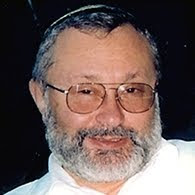Krister Stendahl
 I received news last night that Krister Stendahl has died. For many years, Bishop Stendahl was one of the leading lights of the Lutheran church. First known for his influential scholarship on the Apostle Paul, his academic work influenced his ministry. His understanding of a Jewish Paul working in the multicultural Mediterranean fed Stendahl's own passion for religious openness, tolerance, and friendship. As Bishop of Stockholm and Professor at Harvard Divinity School, his leadership role helped many in the church find legitimacy and hope in that kind of vision.
I received news last night that Krister Stendahl has died. For many years, Bishop Stendahl was one of the leading lights of the Lutheran church. First known for his influential scholarship on the Apostle Paul, his academic work influenced his ministry. His understanding of a Jewish Paul working in the multicultural Mediterranean fed Stendahl's own passion for religious openness, tolerance, and friendship. As Bishop of Stockholm and Professor at Harvard Divinity School, his leadership role helped many in the church find legitimacy and hope in that kind of vision.Rest eternal grant to him, O Lord: And let light perpetual shine upon him.
Few leaders of the church in our day - perhaps ever - have combined his depth of scholarship, pastoral discernment, and unfailing kindness and graciousness. While taking strong and controversial positions (on the full inclusion of women and gay people into the church, on the "Jewishness" of the early Christian movement, on the religious openness to other faiths), Stendahl was irenic, open to persuasion, and would listen carefully to anyone.
I had the pleasure of hearing him and speaking with him a number of times towards the end of his active public teaching, where it seemed that no conference of Lutherans was complete without his presence. His personal kindness was mirrored by his preaching and teaching, for the non-judgmental attitude with which he approached personal interactions was reflected in his vision of a gracious ekklesia. In particular, he helped break open some of the more exclusivist readings of church tradition, arguing that the early church's proclamation of Jesus as the One is extravagent "love language," and needs to heard in that way, not as a constriction of the ways in which God works.
What shall we conclude then? Are we any better? Not at all! We have already made the charge that Jews and Gentiles alike are all under sin.... But now a righteousness from God, apart from law, has been made known, to which the Law and the Prophets testify.... Is God the God of Jews only? Is he not the God of Gentiles too? Yes, of Gentiles too, since there is only one God, who will justify the circumcised by faith and the uncircumcised through that same faith. Romans 3:9,21,29-30
I invite you to leave your own reflections and comments here.
You may also wish to view and help develop Krister Stendahl's Wikipedia entry.
The picture of Bishop Stendahl is from the Harvard Divinity School website, and presumably copyright by them.



Comments
I was pleased to read your post. Stendahl seems like he had as gentle of a soul as he had a sharp mind.
Thank God for the teachers he blesses us with and let us hope and pray the next generation of ministers, theologians, and scholars can come close to honoring the memory of Stendahl and the mindset and devotion he represents.
The early Lutheran reformers were concerned with ministry to the living in the face of a cult of worship directed at praying and paying souls out of purgatory, and were thus uneasy about the amount of spiritual and other effort directed at salvation of those who have already died. Their arguments, though, were directed against the offering of masses for the dead, or any hint that human effort was required to move souls into heaven.
Luther (in his 1528 "Confession Concerning Christ's Supper" gave an example prayer for the soul of one departed. The Apology of the Augsburg Confession states that prayer for the dead is not prohibited (article XXIV, 94). Prayer for the dead is not prohibited by the scriptures, it is commended by ancient authorities, and theologically, prayers are addressed to God, who is the Lord over time.
While some Lutherans remain uneasy with the concept, many more recognize it as a response to the simple pastoral need of mourning, care for loved ones even after death, and participation in the full, eternal life of the communion of saints.